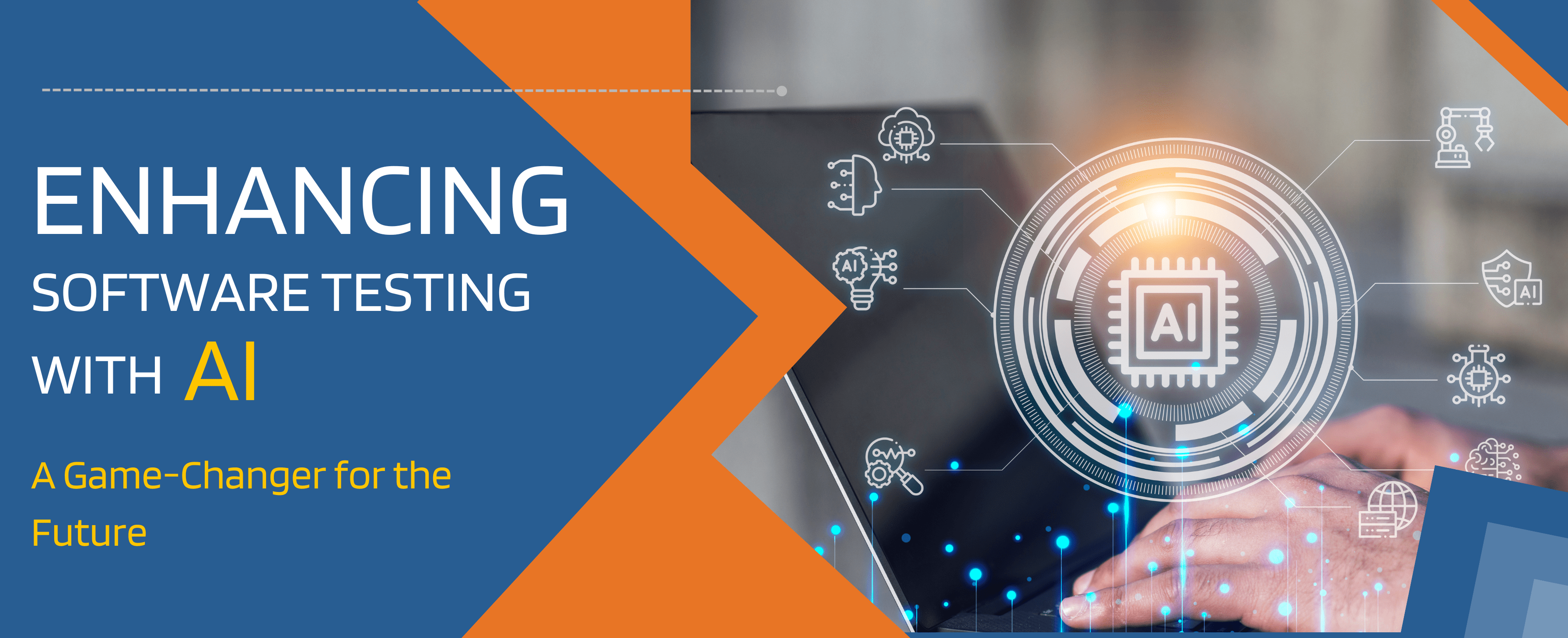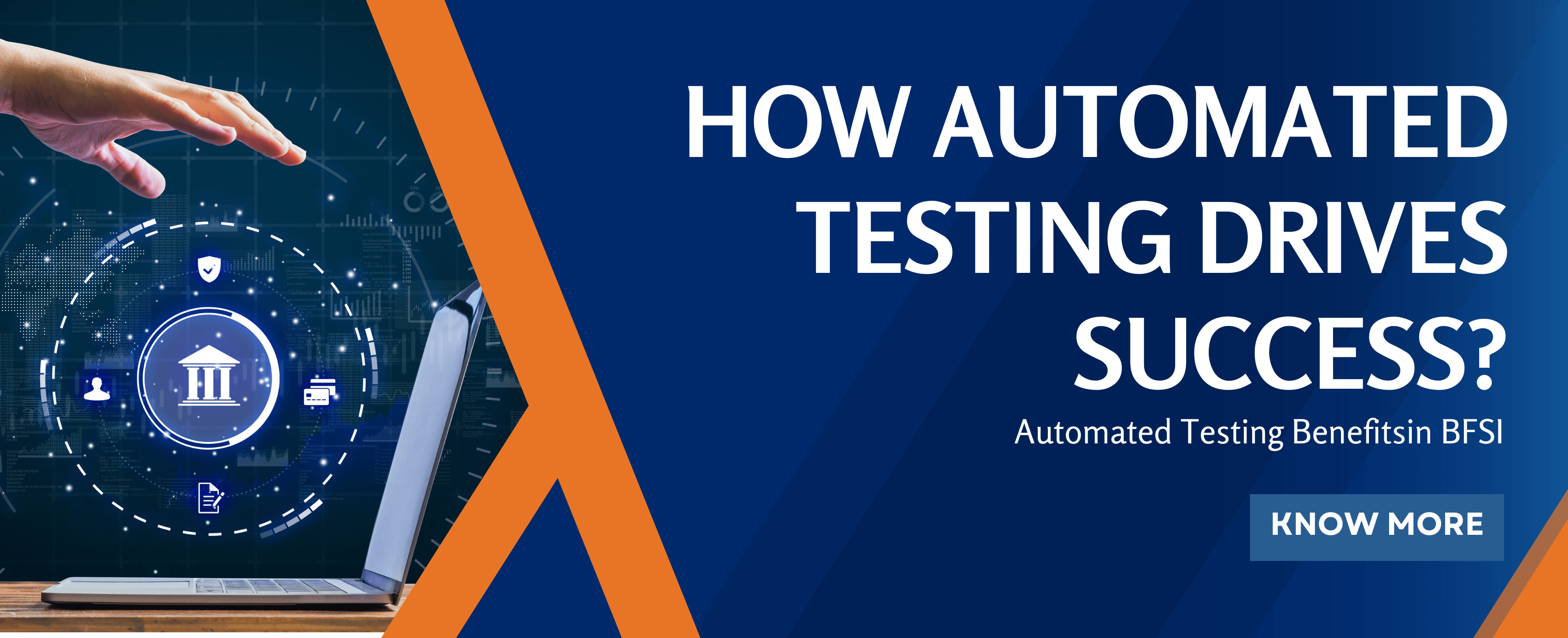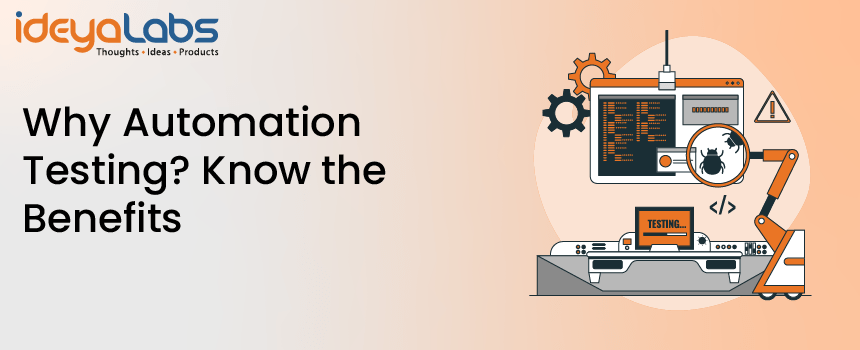The Significance of QA in Software Development
Introduction:
In the ever-evolving world of software development, ensuring that applications and systems run seamlessly is critical. Artificial Intelligence (AI) has emerged as a transformative force,
revolutionizing quality assurance (QA) automation by improving efficiency, accuracy, and reliability. In this article, we'll explore how companies are leveraging AI in QA automation and
delve into the latest technological trends that are reshaping the landscape.
The Emergence of AI in QA Automation
Why AI in QA Automation?
AI in Quality Assurance (QA) Automation offers several compelling advantages, making it a valuable addition to the software development process. Here are the key reasons or advantages for integrating AI into QA Automation
• Enhanced Efficiency : AI streamlines QA processes, reducing the need for manual intervention and accelerating testing.• Improved Accuracy : AI algorithms are proficient at identifying potential issues, ensuring comprehensive test coverage.
• Cost Savings : By predicting vulnerabilities and addressing them proactively, AI saves both time and resources.
• Real-time Feedback : Integration with Continuous Integration and Continuous Testing (CI/CT) allows AI to provide rapid, real-time feedback.
• Simplified Communication : Natural Language Processing (NLP) algorithms simplify test documentation and facilitate effective communication among team members.
How is AI technology integrated into the QA process?
AI technology is integrated into the quality assurance (QA) process to enhance its efficiency, accuracy, and overall effectiveness. It serves several specific functionalities within QA, addressing various aspects of testing and validation. Here's how AI is integrated and the specific functionalities it serves in the QA process.
Specific functionalities it serves:
1. AI-Driven Test Case Generation:Algorithm Proficiency : AI algorithms have evolved to become proficient at generating test cases. They do this by analyzing the application's code and comprehending its functionality.
Reducing Manual Effort : The reliance on manual test case creation is reduced, as AI can automatically generate test cases.
Comprehensive Test Coverage : AI identifies potential issues within the application, which helps in achieving comprehensive test coverage, ensuring that various aspects of the software are thoroughly tested.
2. Predictive Analytics for Bug Detection:
Machine Learning Models : Predictive analytics in AI relies on machine learning models to identify vulnerabilities, bugs, and areas of concern within the codebase.
Proactive Approach : This proactive approach allows companies to address potential issues before they escalate into major problems, ultimately saving time and resources.
3. Continuous Integration and Continuous Testing (CI/CT):
AI Integration : Integrating AI into CI/CT pipelines is a game-changer for software development.
Automated Testing : AI algorithms can execute tests in parallel, ensuring rapid feedback and real-time identification of bugs.
Accelerated Development : By automating testing at each development stage, CI/CT with AI accelerates the entire software development lifecycle.
4. Natural Language Processing (NLP) for Test Documentation:
Extracting Insights : NLP algorithms extract valuable insights from test plans and logs, making it easier to understand and interpret test results.
Improved Communication : This simplifies communication among team members and stakeholders, enabling them to pinpoint issues more efficiently.
5. AI-Driven Test Maintenance:
Automated Updates : AI-based tools detect changes in the application's functionality and automatically update test scripts.
Reducing Manual Work : This automation significantly reduces the burden of maintaining test suites, which is often a time-consuming task in QA.
6. Automated Visual Testing:
Human Vision Simulation : AI in automated visual testing simulates human vision, allowing it to identify visual anomalies in applications.
Enhanced User Experience : This ensures a polished user experience by automatically detecting issues like UI glitches or layout problems.
7. Test Data Generation:
Realistic Data Sets : AI algorithms can generate diverse and realistic test data that mimics real-world scenarios.
Enhancing Accuracy : This enhances the accuracy of test results as the test data closely resembles what the application is likely to encounter in the real world.
8. Virtual QA Assistants:
Chatbots and Virtual Assistants : Equipped with AI, chatbots and virtual assistants can answer common QA-related queries, guide team members, and even execute simple testing tasks.
Accessibility : This makes QA more accessible to all stakeholders, regardless of their technical background, as they can interact with these virtual assistants.
9. AI-Enhanced Performance Testing:
Real-World Simulation : By doing so, they can identify performance bottlenecks and optimize application performance, ensuring that the software can handle real-world usage effectively.
Identifying Bottlenecks : By automating testing at each development stage, CI/CT with AI accelerates the entire software development lifecycle.
In conclusion, AI in QA automation is revolutionizing the software testing process by enhancing efficiency, accuracy, and overall software quality. Each of these AI-driven components contributes to a more streamlined and effective QA process, ultimately leading to better software and improved user experiences.
Emerging Tech Trends in AI QA Automation
• AI in Security Testing: With the growing threat of cyberattacks, AI is used to identify vulnerabilities and weaknesses in software security.• AI in Mobile App Testing: As mobile applications gain prominence; AI ensures their functionality and performance across various devices and operating systems.
• AI in Cloud-Based Testing: With companies shifting to cloud-based infrastructure, AI aids in testing the scalability, reliability, and compatibility of cloud-deployed applications.
• AI in Robotic Process Automation (RPA) Testing: RPA is integral to business processes, and AI validates the functionality of bots and automated workflows.
Disadvantages of AI in QA Automation
While AI in QA automation offers numerous advantages, there are also certain disadvantages and challenges associated with its implementation. Here are some of the disadvantages of AI in QA automation:
1. Initial Implementation Challenges:• Setting up AI-driven QA processes can be complex and require significant initial investments in terms of infrastructure, tools, and training.
• Organizations may face resistance from team members who are unfamiliar with AI technology and may require time to adapt to the new workflows.
2. Dependency on Data Quality
• AI in QA heavily relies on data for training machine learning models and making predictions. If the data used is of poor quality, biased, or unrepresentative, it can lead to inaccurate results.
• Ensuring high-quality, relevant, and up-to-date training data is essential for the success of AI-driven QA.
3. Ethical and Privacy Concerns:
• AI algorithms may inadvertently perpetuate biases present in the training data, which can lead to unfair or discriminatory outcomes in testing.
• Data privacy and security concerns arise when sensitive information is used for testing, and it must be handled with care to avoid breaches or compliance issues.
4. Limited Human Judgment and Creativity
5. Maintenance and Updates
6. False Positives and Negatives
7. Integration Challenges
8. Costs of AI Implementation
9. Skill Gap
10. Overreliance on AI
It's essential for organizations to carefully weigh the advantages and disadvantages of AI in QA automation and implement strategies to mitigate potential drawbacks. A well-balanced approach that combines AI's strengths with human expertise can lead to effective and efficient QA processes.
Conclusion
AI is reshaping the QA automation landscape, optimizing testing processes, reducing human intervention, and enhancing software quality. Staying current with the latest technological trends in AI QA automation is essential for competitiveness in the dynamic software development industry. By incorporating AI into your QA practices, you can streamline your processes, deliver higher-quality software, and delight your end-users.
Remember, AI in QA automation is not merely a trend; it's a transformative force that has the potential to revolutionize the way we build and maintain software systems. Embrace it and witness your software development endeavors thrive in the age of AI.



